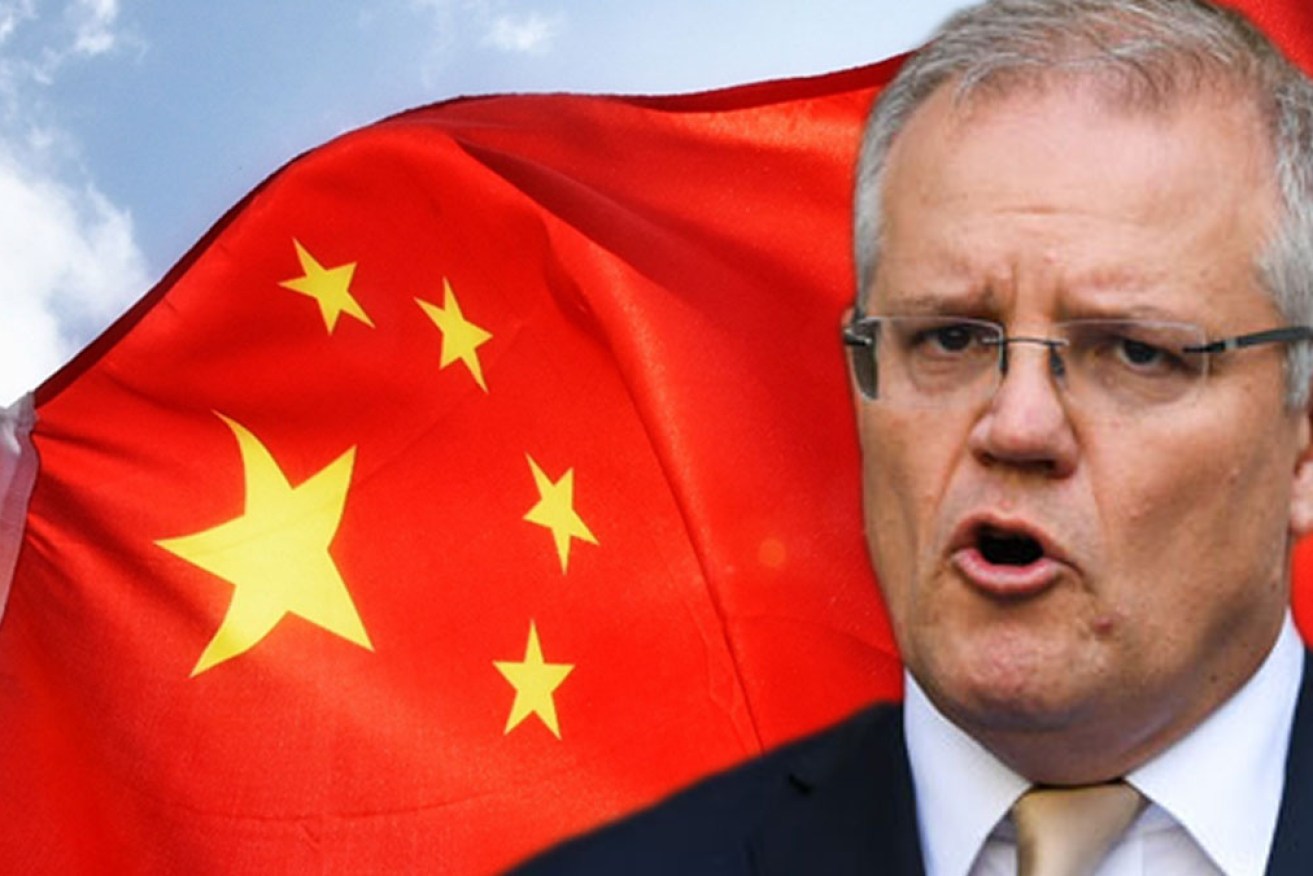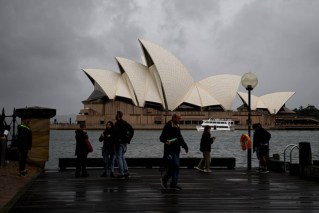Confusion and Chinese fury over cancelling BRI infrastructure deal


Australia and China are on another collision course over the BRI. Photo: TND
The federal government’s decision to tear up Victoria’s ‘belt and road’ agreement with China was done to “protect Australia’s national interests”, the Prime Minister says.
But experts say it’s not actually clear what threat the deal actually posed.
It’s a move that will “bring further damage to bilateral relations”, warned China’s embassy, claiming the federal government “will only end up hurting itself”.
Foreign Minister Marise Payne announced on Wednesday night the federal government had used new powers to cancel four Victorian government agreements with foreign countries; one with Syria, one with Iran, and two linked to China’s Belt and Road Initiative – known as the BRI.
Senator Payne said her decision was about “ensuring there’s consistency across our foreign relations”.
“I want to be very clear that it’s not aimed at any one country.”
What was the risk of the BRI?
The Belt and Road Initiative is a “pet project” of Chinese President Xi Jinping, says Monash University senior lecturer in Chinese studies, Dr Kevin Carrico.
“It provides funding for infrastructure projects on a global scale,” he told The New Daily.
“It was envisaged to create goodwill and favourable impressions of China”.

The BRI is a “pet project” for Xi Jinping. Photo: AAP
The BRI has seen Chinese investment into roads, ports and more in foreign nations.
Beijing’s critics allege the program, in some cases, lures poorer countries into “debt traps”, with China seizing infrastructure or collateral assets when loans can’t be repaid.
Victoria’s 2018 BRI agreement was criticised by the federal government, after Canberra decided not to sign one at a national level.
Victoria’s arrangement did not include any such infrastructure builds, but Dr Carrico called it a “dumb” agreement.
“I don’t see any noticeable benefit,” he said.
Senator Payne claimed the scrapped deals were “not consistent with Australia’s foreign relations”, but was reluctant to explain exactly her concern over the BRI.
“The programs that we’re talking about are development programs of another country,” she told 3AW.
“It’s been the federal government’s long-standing position not to sign an overarching Belt and Road agreement.”
Victoria’s government has said little about the Commonwealth decision, with only Employment Minister Jaala Pulford emerging on Thursday to say simply, “It’s a decision they’ve taken”.
Labor’s shadow foreign affairs minister Penny Wong resisted criticising Victoria, but said the federal opposition wouldn’t sign such agreements, telling ABC radio “over time people’s view about the BRI has changed”.
Dr Carrico said although he wasn’t aware of many negative aspects for Victoria, he was concerned the deal could have legitimised such agreements around the world.
The Australian National University’s Dr Andrew Carr said the federal government hadn’t outlined its explicit concerns, and that many saw Victoria’s BRI deal as simply a “desire to co-operate” with China.
“Nowhere I’ve seen has shown where a threat was identified,” Dr Carr, senior lecturer in ANU’s Strategic and Defence Studies Centre, told TND.
He said the stance from Canberra was a departure from historical norms, where the Commonwealth government welcomed various agreements to bolster Australia’s standing on the global stage.
“Australia’s engagement with the world has always been through a wide range of governments and individuals. Most [state] departments have overseas relationships. That’s the nature of international relations these days, it’s not always managed through the Prime Minister’s desk,” Dr Carr said.
“This federal government has come to the view it should have absolute control over foreign policy… we don’t have a clear idea of why [the BRI] was of concern, other than this.”
Why scrap the BRI now?
Mr Morrison said the foreign arrangements scheme was to ensure state and federal agreements weren’t conflicting.
“There is one foreign policy of this country,” he said on Thursday.
Liberal MP Dave Sharma said the federal government believes in Australian companies and states “engaging with the world”, but the decision was to underline the Commonwealth as the final arbiter on foreign relations.
“It’s about ensuring consistency and coherence of our foreign policy and national security approach. Most state agreements won’t fall foul of this,” he told The New Daily.

Dave Sharma. Photo: AAP
Mr Sharma – a former ambassador to Israel and international relations adviser to government – said the decision to cancel Victoria’s BRI was largely due to the federal government having already rejected its own such deal.
“We’ve got a comprehensive relationship and seek a constructive relationship with China. But the BRI is something the federal government looked at comprehensively, but decided not to,” Mr Sharma said.
“It’s not because we’re hostile to Chinese infrastructure, but for a state to conclude an agreement on something the federal government already decided not to pursue … that makes it almost prima facie inconsistent with our foreign policy.”
What now?
Dr Carrico said it would be “unwise” for China to retaliate over the BRI scrapping, but a spokesman for the Chinese embassy in Australia quickly voiced his “strong displeasure and resolute opposition” to the decision.
“It further shows that the Australian government has no sincerity in improving China-Australia relations,” the official warned.
Reuters reported that a Chinese foreign ministry spokesman issued a veiled threat that China may take further actions – claiming Australia was the only country to tear up a Belt and Road agreement, which set a “dangerous precedent”.
Mr Sharma said the decision was “entirely an internal matter for Australia”.
“I find it a bit odd that China, a country which makes a great deal about respecting the sanctity of national sovereignty … would firstly comment on internal affairs of Australia and seek to criticise it,” he said.








